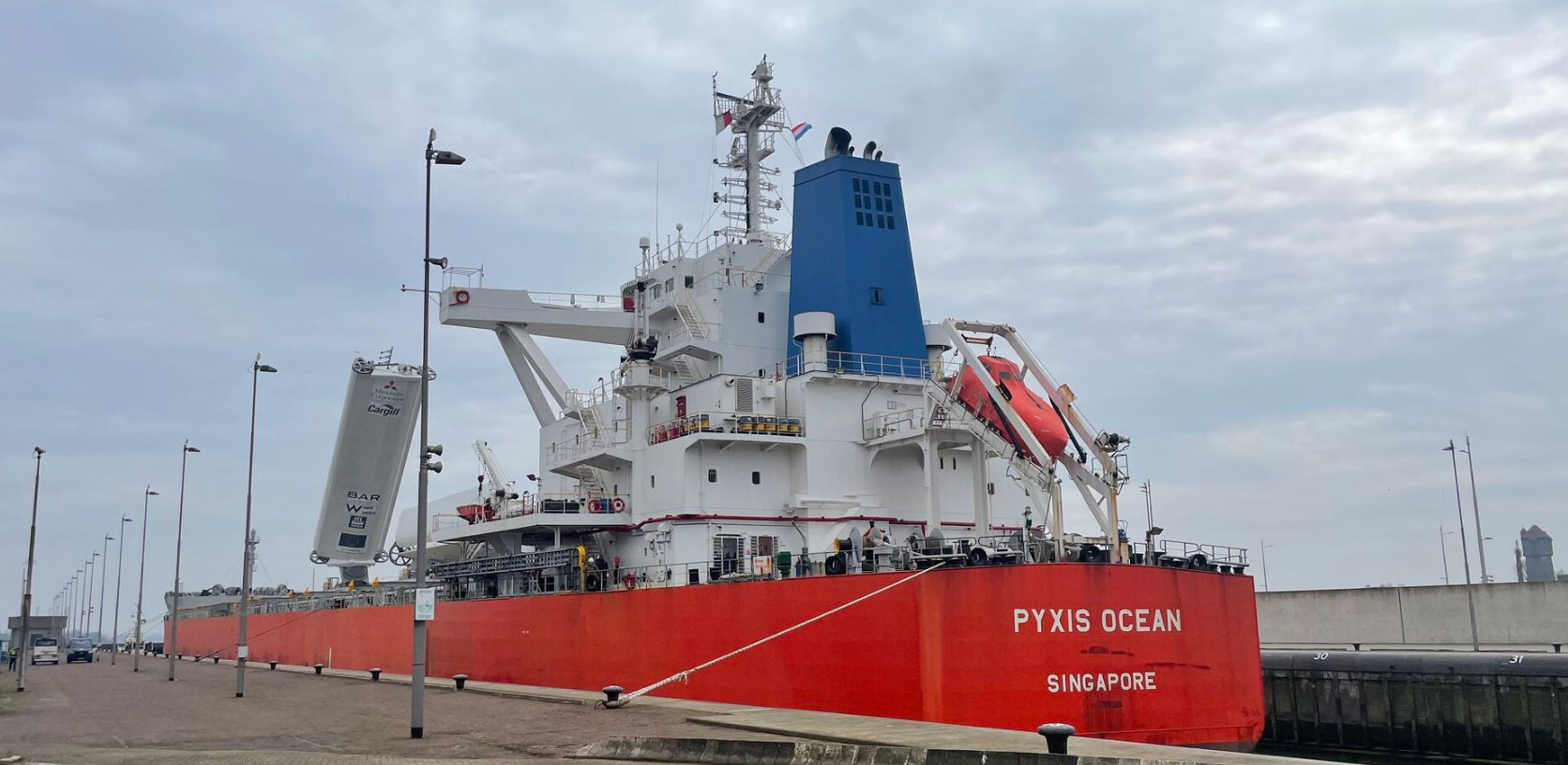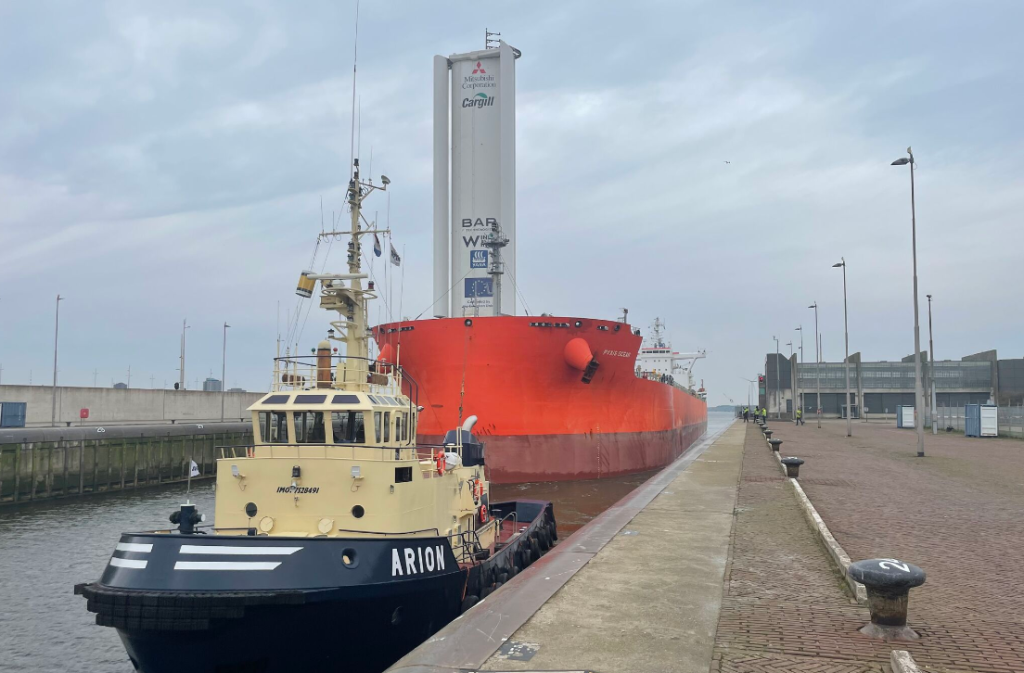
The Pyxis Ocean sailed into the Port of Amsterdam on Sunday, marking a significant step in maritime innovation. What sets this vessel apart is its embrace of ancient sailing techniques combined with cutting-edge technology. Unlike traditional sails, the Pyxis Ocean’s sails are made of aluminum, equipped with sophisticated sensors that autonomously adjust their positions relative to the wind. This revolutionary approach contributes to a remarkable 10% reduction in CO2 emissions, aligning with the Port’s commitment to cleaner shipping.
Henri van der Weide, policy advisor at the Port of Amsterdam and a key figure in the Clean Shipping program, expressed enthusiasm for such developments. “Sustainable shipping has been a focal point for us for years,” he stated. “This aligns with the goals of the International Maritime Organization (IMO) and the European Union (EU). Our Clean Shipping Vision outlines our ambitions, goals, and actions, focusing on sustainable maritime fuels, emission reduction technologies, and efficient port operations.”

The three pillars of the Clean Shipping Vision include sustainable ship fuels, emission reduction technologies like expanded shore power facilities, and optimizing port processes for efficient vessel handling. These efforts contribute significantly to improving air quality in the city, region, and addressing the climate challenges set by the Paris Agreement. Wind support, alongside solar panels and fuel cell technology, emerges as a pivotal technique in achieving cleaner shipping.
The Amsterdam port plays a crucial role as one of the founders of the Environmental Ship Index (ESI). Ships surpassing emission standards receive higher ESI scores, translating into discounts on port fees. The Environmental Ship Index, applied in over sixty ports globally, encourages environmentally conscious practices.
The commitment to cleaner fuels and innovative technologies, such as intelligent sails, prompts updates to the ESI. The upcoming ESI 2.0, launching next year and fully operational by January 1, 2026, will include wind support as one of the innovations. Reducing environmental impact becomes a strategic advantage, with higher ESI scores leading to increased discounts for shipping companies investing in fleet sustainability.
As the maritime industry embraces these advancements, the Port of Amsterdam stands at the forefront, championing sustainable practices that pave the way for a cleaner and more efficient future in global shipping.

